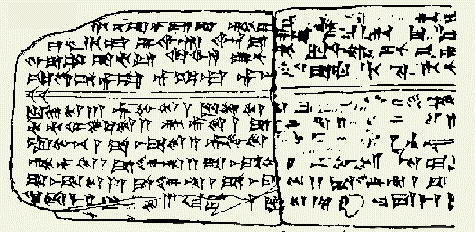
| Ugarit |
|---|
 |
| Places |
| Kings |
| Culture |
| Texts |
The Hurrian songs (or Hurrian Hymns)[2] are a collection of music inscribed in cuneiform on clay tablets excavated from the ancient Amorite-Canaanite city of Ugarit, a headland in northern Syria, which date to approximately 1400 BC.[3][4] One of these tablets, which is nearly complete, contains the Hurrian Hymn to Nikkal (also known as the Hurrian cult hymn or "a zaluzi-prayer to the gods," or simply "h.6"), making it the oldest surviving substantially complete work of notated music in the world. While the composers' names of some of the fragmentary pieces are known, h.6 is an anonymous work.
- ^ Giorgio Buccellati, "Hurrian Music" Archived 2016-10-09 at the Wayback Machine, associate editor and webmaster Federico A. Buccellati Urkesh website (n.p.: IIMAS, 2003).
- ^ Smith, John Arthur (2020). Music in Religious Cults of the Ancient Near East. Routledge. ISBN 978-1-000-21032-3.
- ^ Marguerite Yon, The City of Ugarit at Tell Ras Shamra (Winona Lake, IN: Eisenbrauns, 2006): 24. ISBN 978-1575060293 (179 pages)
- ^ Dumbrill, Richard J. (2005). The Archaeomusicology of the Ancient Near East (2. ed., rev. and corr. with additional notes and appendices ed.). Victoria, BC: Trafford Publ. p. 117. ISBN 978-1-4120-5538-3.